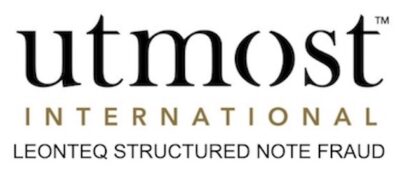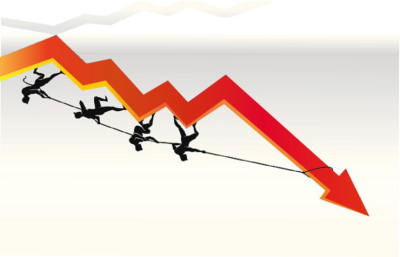Pension Life
It takes a lifetime to build up a pension.
But it takes a scammer less than a minute to destroy it.

It takes a lifetime to build a pension.
but it takes a scammer less than a minute to destroy it.
Find out what Pension Life is doing to help victims.
Pension Scams Explained
What is a pension?
In technical terms, a pension is a wrapper (or container) which holds money and investments. For those in a British pension, the pension scheme is registered by HMRC and has to conform to specific UK pension rules. In the case of an occupational pension, the scheme is also registered by the Pensions Regulator and has to conform to further UK pension rules. There are offshore pension schemes – known as QROPS (Qualifying, Recognized, Overseas Pension Schemes) or ROPS (as above but without the “qualifying” bit). These are schemes which have told HMRC they comply with UK pension rules.
In human terms, a pension is a mechanism by which a person saves up for retirement. After working for a lifetime, there should be sufficient money put by to live on for the rest of that person’s life – in comfort and without worrying about running out of money.
Pensions are fairly complicated things and should only be managed, administered and advised by qualified, licensed professionals.
What is a pension scam?
Things start to come unstuck when pensions are managed, administered and advised by unqualified, unlicensed salesmen who are only after commissions. Pension schemes which allow the member or the member’s “adviser” to choose the investments (such as SIPPS or QROPS) can be open to abuse.
The initially harmless pension wrapper can hold toxic, expensive, high-risk contents such as insurance bonds, structured notes and unregulated funds or mini-bonds. These are typically chosen by unscrupulous salesmen posing as advisers, and serve only to pay fat commissions to the scammers.
What is the difference between a genuine pension and a pension scam?
A car can be used for taking Granny out for a trip to the park, but it can also be used as a getaway vehicle in a bank robbery. Equally, a pension wrapper can be used by an ethical, qualified, licensed adviser who sells proper advice – or it can be used by an unqualified, unlicensed a spiv who sells products which are chosen for the high commissions.
A pension scheme which is chosen and invested by the right type of professional and independent adviser, should be invested safely in diverse, liquid, low-risk assets. This type of adviser will charge a fee for the advice, and will not earn hidden commissions from any of the products chosen.
A pension scheme which is selected by a scammer will be invested in whatever pays the most commission. The scammer won’t care whether the victim is put at risk of losing the pension which he or she has spent a lifetime saving up for.
What are the typical symptoms of a pension scam?
All pension scams are different – but similar. If one or more of the following are present, these should be viewed as red flags;
- Free pension review
- Your existing pension arrangements are no good/under-funded/not giving good returns
- Your existing pension is “frozen”
- Moving to a new pension (e.g. occupational scheme, SIPPS, QROPS) will enable you to have control over your investments (which actually means that the scammer has control over your investments)
- The new pension will enable you to get “guaranteed” high returns with low risk and capital protection
- An insurance bond will give you tax efficiency and protect your investments
- You can transfer to an occupational scheme even though you don’t work for the sponsoring employer of the scheme
There are, of course, many other tell-tale signs. The problem is that scammers are very convincing and plausible.
How to tell if you've been scammed?
Depending how the pension has been invested, the first sign might be a valuation from the pension or bond provider. This might show that the value has gone down. The scammer will shrug this off with claims that there are set-up costs which affect the value. Then there will be promises that any investment losses are “only paper losses” and when the investments mature the value will recover.
There could be claims that there’s been a “market downturn” or that there has just been some back luck – and that the losses will be recovered when the money is reinvested.
Sometimes, a fund can get suspended or go into administration. Occasionally, a victim will seek a second opinion from a qualified, licensed professional, and will be told that the pension has been invested negligently or fraudulently.
Occasionally, the trustee will inform the victim that the funds have been totally lost or destroyed. And sometimes the first a victim knows is when the case is reported in the press.
OUR MISSION
What is Pension Life doing?
Taking criminal action against pension scammers
Helping prevent pension scams
Launching civil action against those who facilitate pension scams
Warning potential new victims against the dangers of pension scams
Appealing to the Tax Tribunal against pension liberation tax penalties
Working with advisers, life offices, pension trustees, ombudsmen and regulators to help pension scam victims
Visit our
Blog
Read about various pension and investment scams. See what different actions are being taken.

Utmost Leonteq Fraud
Insurance bonds and QROPS continue to flourish with thousands of victims being defrauded into these arrangements every year. The Leonteq structured note fraud has now settled out of court and there is some limited compensation payable to victims of Utmost International’s investment scams.

Trafalgar Multi Asset Fund Judgement
High Court Rules in Trafalgar Multi Asset Fund Case against James Hadley and associates. In a recent High Court judgment, Judge Mr. Nicholas Thompsell found that the Cayman-Islands based Trafalgar Multi Asset Fund (TMAF) was involved in an illegal conspiracy to “extract commissions from the investments.” The defendants, who were also behind the 2013 Store

TOP 3 WORST LIFE OFFICES
For over a decade, life offices (more accurately known as “death” offices) have been the centre of millions of pounds’ worth of destroyed pensions. So here we are going to name the top 3 worst life offices… These are just some of the things they’ve been up to: Collaborating with scammers: unregulated, rogue firms posing

Fraud in Spain – Julius Baer
Spain is, sadly, the World’s capital of wealth scamming. For more than a decade, wealth planning has been perverted and converted into a commission-laden fraud. This financial crime has relieved thousands of victims of their pensions and life savings. Originally a private Swiss bank, Julius Baer now wants to diversify into the Spanish wealth market.

Pension Scams Explained – Stage 2
Our last blog in this series recreated the offshore pension scam process. We covered the set up and hard sell. The slick salesman prepared the unwitting victim and convinced him his pension would be better off out of the UK. The silver-tongued spiv, Darren, posing as an adviser, conned his new client with no problem

THE BOLLOCKS OF OLD BAILEY
I don’t often disagree with highly-regarded pensions expert Henry Tapper. Too much respect and awe. But his recent blog: “The Balls of Old Bailey” (about Andrew Bailey) merits a polite argument. It has made me cross – not cross with Henry, per se. But cross with the failure of Britain’s culture, government, regulation and legal
Discover more!
Pension Scam Investments
Pension scammers thrive and prosper on commission. That is the reason for their existence – as well as their enthusiasm and persistence
